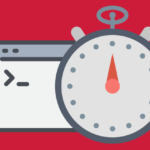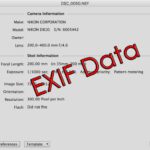Installation netdate in Echtzeit-Überwachung auf Debian
Im Folgenden eine sehr einfache Möglichkeit, Ihre Server netdate auf Debian zu starten Überwachung. Wir haben in einigen sehr einfachen Schritten.
Beginnen wir von dem, was netdate
Netdate ist ein kostenloses Tool für eine schöne Schnittstelle in Echtzeit Systemleistung Überwachung GUI. Wir können die CPU-Überwachung, die Verwendung von RAM, Plattenoperationen, Verkehr, Postfix und viele andere. Schnell und sammelt effektiv Leistungsdaten in Echtzeit.
Kommen wir nun installieren.
Wir Update-Repositories und Systemen:
1 2 | sudo apt-get update -y sudo apt-get upgrade -y |
Als nächstes werden die notwendigen Pakete:
1 | sudo apt-get install zlib1g-dev uuid-dev libmnl-dev pkg-config curl gcc make autoconf autoconf-archive autogen automake python python-yaml python-mysqldb nodejs lm-sensors python-psycopg2 netcat git -y |
Der nächste Schritt ist die Skriptdatei zum Download:
1 | git clone https://github.com/firehol/netdata.git --depth=1 ~/netdata |
Gehen Sie auf die Download-Ordner:
1 | cd netdata |
führen Sie das Installations:
1 | sudo ./netdata-installer.sh |
Wir sollten den folgenden Bildschirm sehen, klicken Sie auf die Enter-Taste.
1 2 3 4 5 6 7 8 9 10 11 12 13 14 15 16 17 18 19 20 21 22 23 | |.-. .-. .-. .-. . netdata | '-' '-' '-' '-' real-time performance monitoring, done right! +----+-----+-----+-----+-----+-----+-----+-----+-----+-----+-----+-----+---> You are about to build and install netdata to your system. It will be installed at these locations: - the daemon at /usr/sbin/netdata - config files in /etc/netdata - web files in /usr/share/netdata - plugins in /usr/libexec/netdata - cache files in /var/cache/netdata - db files in /var/lib/netdata - log files in /var/log/netdata - pid file at /var/run/netdata.pid - logrotate file at /etc/logrotate.d/netdata This installer allows you to change the installation path. Press Control-C and run the same command with --help for help. Press ENTER to build and install netdata to your system > |
Nach der korrekten Installation sollten Sie den folgenden Bildschirm sehen:
1 2 3 4 5 6 7 8 9 10 | --- We are done! --- ^ |.-. .-. .-. .-. .-. . netdata .-. .- | '-' '-' '-' '-' '-' is installed and running now! -' '-' +----+-----+-----+-----+-----+-----+-----+-----+-----+-----+-----+-----+---> enjoy real-time performance and health monitoring... |
Wir tun Reload-Service und die Markteinführung:
1 | sudo systemctl start netdata |
Der Service kann den Status des Befehls überprüfen:
1 | sudo systemctl status netdata |
1 2 3 4 5 6 7 8 9 10 11 12 13 14 15 | netdata.service - Real time performance monitoring Loaded: loaded (/etc/systemd/system/netdata.service; enabled; vendor preset: enabled) Active: active (running) since Sat 2018-02-10 11:19:29 EST; 18min ago Process: 575 ExecStartPre=/bin/chown -R netdata:netdata /var/cache/netdata (code=exited, status=0/SUCCESS) Process: 574 ExecStartPre=/bin/mkdir -p /var/cache/netdata (code=exited, status=0/SUCCESS) Main PID: 580 (netdata) Tasks: 17 (limit: 4915) CGroup: /system.slice/netdata.service ??580 /usr/sbin/netdata -P /run/netdata/netdata.pid -D ??600 bash /usr/libexec/netdata/plugins.d/tc-qos-helper.sh 1 ??612 /usr/libexec/netdata/plugins.d/apps.plugin 1 ??613 /usr/bin/python /usr/libexec/netdata/plugins.d/python.d.plugin 1 Feb 10 11:19:27 Netdataserver systemd[1]: Starting Real time performance monitoring... Feb 10 11:19:29 Netdataserver systemd[1]: Started Real time performance monitoring. |
Konfigurieren Sie die Firewall und fügen Sie eine Ausnahme:
1 | sudo apt-get install ufw -y |
laufen eine Firewall:
1 | sudo ufw enable |
Fügen Sie eine Ausnahme für den Port Skript netdate:
1 | sudo ufw allow 19999/tcp |
pozaładowujemy Service.
1 | sudo ufw reload |
Der Zugriff auf die Web-Schnittstelle ist auf Port 19999:
oder :
http://nasz_adres_ip:19999





